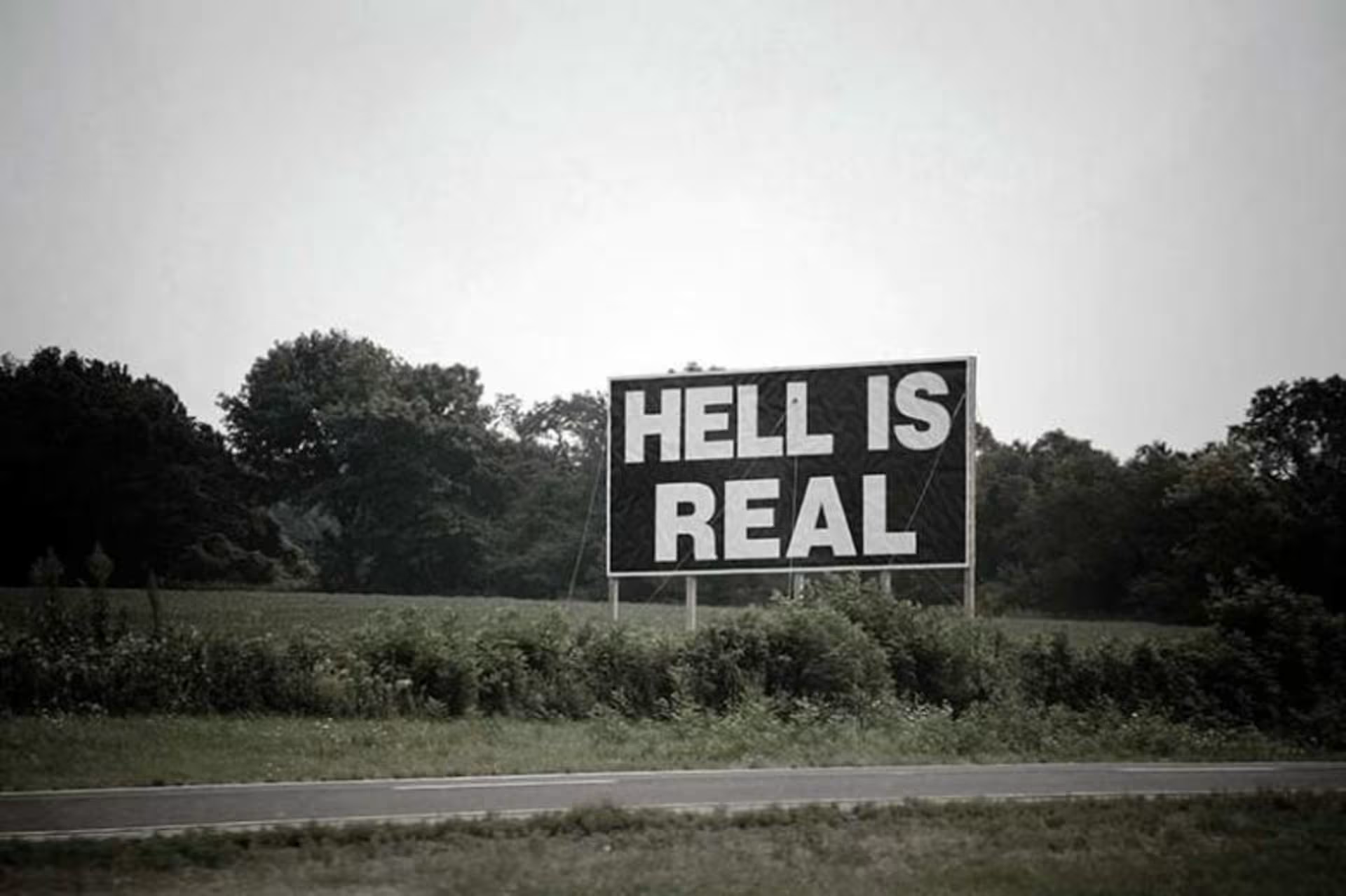There is a popular show on cable called “MythBusters.” The hosts Adam and Jamie test urban myths to see if they could be true.
During the last 12 seasons they have tested all kinds of Internet myths and blown up nearly everything from a Porta-Potty to a cement mixer. They have also proven that some myths are possible, some are not possible and some may be plausible under the right conditions.
About the only exception to the types of myths that they have tested are myths about Christian belief and practice. Yet, there are many myths within the church that could be tested and many would be proven false.
Of course, one of the main reasons that they do not attempt to test this type of myth is that they cannot be proven or disproven by experimentation since they belong to the arena of faith.
To prove or disprove these myths, we must turn to Scripture. One such myth that is prevalent in our 21(See disclaimer st) century culture is that hell does not exist.
There are many people and even many religious leaders that claim that hell is not a real place. The claim is even made that hell is not mentioned anywhere in the Bible. These same people then present an argument that hell is not real because the word ‘hell’ is not found in Scripture.
Yet, a careful reading of Scripture will find that hell is actually mentioned many times and Jesus Christ spoke of hell often.
Scriptures About Hell
Perhaps one of the things that confuses many people is that metaphors are often used in Scripture to speak about hell. “Bottomless pit” is used in Revelation 9:1, 2, 11; 11:7; 17:8 and 20:1.
In Jude 1:6-7, the phrases, “kept in eternal chains under gloomy darkness” and “punishment of eternal fire” are used to speak of the eternal punishment of hell. The writer of Hebrews used the phrase “fury of fire” (10:27).
Jesus used various metaphors when speaking about hell since he knew that his first-century listeners would understand these metaphors. One such example is found in Mark where Jesus used the phrase “where their worm does not die and the fire is not quenched” (9:48) to describe hell.
The clearest reference to hell was made by Jesus when he told the story of the rich man and Lazarus found in Luke 16:19-31. Notable in that passage is the following:
The rich man also died and was buried. In Hades, where he was in torment, he looked up and saw Abraham far away, with Lazarus by his side. So he called to him, ‘Father Abraham, have pity on me and send Lazarus to dip the tip of his finger in water and cool my tongue, because I am in agony in this fire. (Luke 16:22-24)
As you can clearly see from this passage of Scripture, Jesus believes in hell. The rich man was in torment and in flames. He begged for a small amount of water to relieve his suffering and also begged that Lazarus be sent to warn his family of the very real dangers of dangers of hell.
Our choice is actually a very simple choice. We can choose to believe Jesus and the Word of God or we can believe those that claim that hell is not real.
If you believe that you follow Jesus, then follow all that He taught and not just the select passages that make you feel good.
The Apostle Paul warned us of not listening to what has been historically taught by Scripture and the church when he said: “But even if we or an angel from heaven should preach a gospel other than the one we preached to you, let them be under God’s curse!” (Galatians 1:8)
For more information on this topic, check out one of our newest episodes of Trending Faith, presented by Grand Canyon University’s Dean of the College of Theology Dr. Jason Hiles and University Pastor Tim Griffin.






